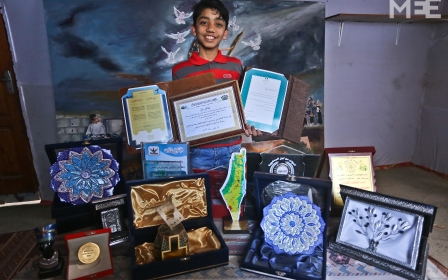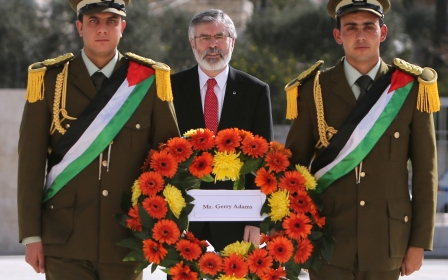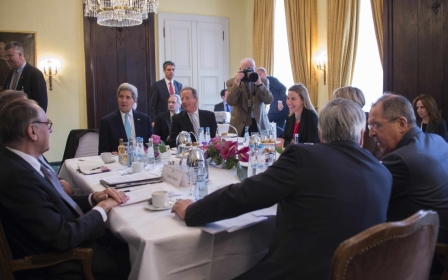IN PICTURES: Palestinians carry on despite latest storm

The Palestinians inside the Gaza Strip, already in a very dire humanitarian situation, have been hit with a major sand storm and heavy winds for the past two days.
The storm especially affected the tens of thousands of Palestinians who lost their homes during last summer's Israeli offensive which destroyed 18,000 housing units. Six months after the truce, many displaced Palestinians have been staying in shelters or damaged homes and are getting increasingly frustrated by the lack of rebuilding on the ground. UNOCHA indicates that "although by early January 2015, nearly 40,000 individuals had been granted authorisation to purchase construction materials restricted under the Israeli blockade, less than 40 percent of them have actually purchased materials."
This is primarily due to financial constraints. According to UNRWA, 11,000 displaced Palestinians still live in schools, which are not equipped to face harsh weather conditions, nor host so many people for such a long period of time.
In Shujayeha, Eyad and Motaaz Helles, both brothers and owners of a three-story building that was completely destroyed last summer, had to borrow money to build a modest one-story house that is not large enough to house the 25 members of the family.
Eyad said: "Our home was built by our father forty years ago, my brother just added another floor 3 months ago. We had to flee with nothing but our lives. Now the situation is unbearable. The building is so expensive, and we had to borrow money. We want the rebuilding process to be faster."
The work on the house continues despite the storm because they want to move in as soon as possible.
The effect of the storm and bad weather is also felt by Hekmmat Shamali, 50, mother of 14 children. She lives together with more than 20 members of her family in a large tent covered by plastic sheeting in Shujayeha.
She said this about the living conditions: "This is terrible. All the children are sick with coughing or skin disease. When it is raining we have water inside, and with the strong wind, we cannot sleep due to the noise. We have no electricity, nor water, and we cannot use the heaters because we are afraid of starting a fire."
Ghada Shamali, 18, adds: "The situation is very bad. People were patient until now, but when we heard that UNRWA will stop their support, we lost our patience."
New MEE newsletter: Jerusalem Dispatch
Sign up to get the latest insights and analysis on Israel-Palestine, alongside Turkey Unpacked and other MEE newsletters
Middle East Eye delivers independent and unrivalled coverage and analysis of the Middle East, North Africa and beyond. To learn more about republishing this content and the associated fees, please fill out this form. More about MEE can be found here.




